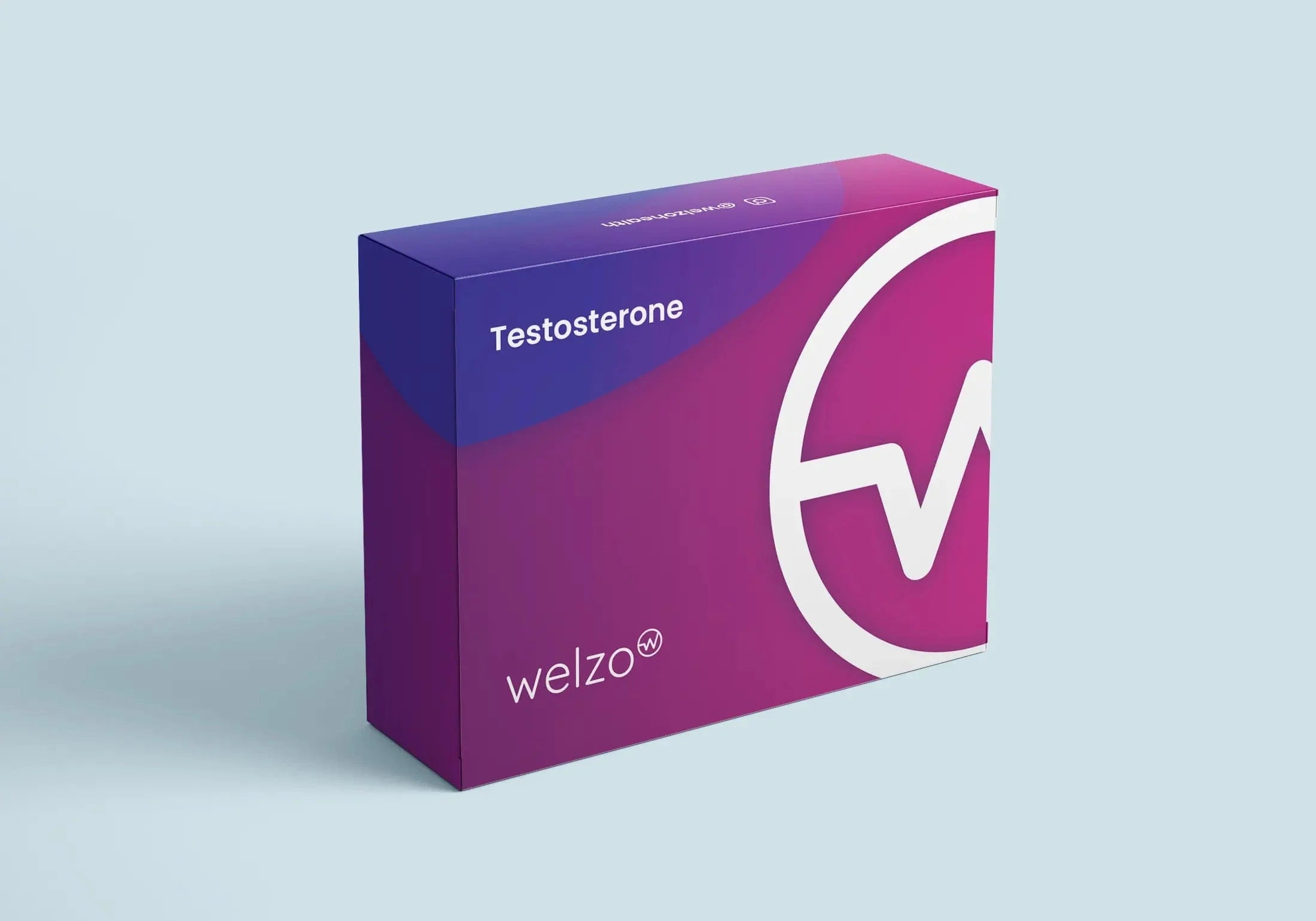Does Testosterone Decrease with Age?


Testosterone is far more than just a 'male hormone'; it's a crucial biological molecule that has expansive influence over a myriad of bodily functions. We all have it, men and women alike, but it exists in different concentrations and performs different roles based on gender, age, and individual health.
"Testosterone plays a significant role in physical and metabolic functions, as well as influencing mood and mental wellbeing," says Dr. Sarah Matthews, a leading endocrinologist at the University of Oxford. She further elaborates that the hormone is responsible for muscle growth, bone density, and even how we store fat.
When discussing testosterone, the first thing that leaps to mind is its profound role in physical development. During puberty, testosterone levels spike and work in harmony with other hormones to trigger body hair growth, deepen the voice, and fuel muscle development. "This is a critical period where an imbalance in testosterone levels could lead to developmental issues," states Dr. Tim Roberts, a pediatric endocrinologist.
Examples of the impact of testosterone are particularly evident in athletic circles. Anabolic steroids, which are essentially synthetic testosterone, are sometimes used to artificially enhance muscle growth and improve athletic performance. However, this can have adverse effects such as mood swings, liver damage, and an increased risk of heart disease. The point is, testosterone is potent; it needs to be in just the right concentration for optimal physical health.
Testosterone doesn't just flex its muscles in the realm of physical development; it's also a key player in emotional wellbeing. A decrease in testosterone levels is commonly associated with feelings of depression, a lack of motivation, and reduced cognitive abilities. Dr. Lisa Walker, a psychologist specialising in hormonal effects on mood, points out, "Our emotional landscape is, in part, shaped by our hormones, including testosterone."
Studies conducted in the UK have shown that men with lower levels of testosterone are more likely to develop depression compared to those with higher levels. Similarly, women with abnormally low levels may also experience emotional upheavals, although the exact science is still under research. Emotional wellbeing is a complex tapestry of biological, psychological, and environmental factors, but the role of testosterone is undeniably significant.
Metabolism is essentially the body's engine, converting food into energy, and testosterone acts like high-octane fuel. It assists in the metabolism of fats, helping to regulate weight, muscle mass, and insulin sensitivity. "People often overlook the role of hormones in metabolism, but they are key drivers of metabolic activity," affirms Dr. Emily Johnson, a researcher in metabolic studies.
Furthermore, testosterone contributes to cardiovascular health by promoting healthy blood flow. It acts on the liver to influence protein synthesis, thereby aiding in muscle building and repair. These are only the tip of the iceberg when it comes to the systemic roles of this hormone. In a nutshell, almost every organ system in the body is, in some way, influenced by testosterone.

Buy Testosterone Blood test online here.
The standard units for measuring testosterone are nanograms per decilitre (ng/dL) or nanomoles per litre (nmol/L) depending on the laboratory and local standards. The interpretation of these results is not straightforward; it is determined by a combination of factors like age, sex, and overall health. "One cannot look at testosterone levels in isolation," states Dr. Sarah Matthews.
Testosterone levels are not constant throughout life. They peak in early adulthood and naturally decrease with age. For instance, the average range for adult men is 270 to 1070 ng/dL, with an average level of 679 ng/dL. For women, the numbers are much lower, usually ranging between 15 and 70 ng/dL. Dr. Tim Roberts emphasises that "age-specific ranges are crucial in interpreting testosterone levels."
Given the critical roles that testosterone plays in both physical and emotional health, periodic testing is crucial, especially as one ages. This is particularly true for men over the age of 50, where low testosterone levels could contribute to 'andropause', often referred to as the male menopause. Dr. Emily Johnson highly recommends annual checks, stating, "Periodic testing gives us a window into the body's hormonal landscape, enabling timely interventions."
Is decreasing testosterone an inevitable part of aging? Not necessarily. While it's true that testosterone levels naturally decrease as men age, this decline is not uniform for all individuals and can be influenced by lifestyle factors such as diet and exercise. "There are ample examples of older individuals with robust testosterone levels," points out Dr. Sarah Matthews.
Research shows that testosterone levels can begin to decline as early as the late 20s in some men. However, the decline is generally gradual, about 1% per year, and is often not noticeable until later in life. A study carried out at the University of Cambridge found significant variability in testosterone levels across different age groups and between individuals of the same age. The decline is not a universal experience, but rather a variable one.
While not all men will experience a significant decline in testosterone levels, those who do might notice symptoms like fatigue, decreased libido, and difficulties with concentration. "It's essential to differentiate these symptoms from general aging," advises Dr. Tim Roberts. For many, interventions like testosterone replacement therapy can improve quality of life, but this treatment is not without its risks and should be approached cautiously.
So, while the mantra might be that 'age is just a number', when it comes to testosterone, that number could be telling you more about your health than you think.
It's a question that has intrigued endocrinologists and gerontologists alike: does testosterone decline at the same rate for everyone? From the male population concerned about virility to the scientists ardently mapping out the complexities of ageing, the rate at which testosterone decreases has been the subject of numerous studies and debates.
Genetics play a crucial role in how quickly your testosterone levels decline. Some men experience a steady decrease from their 30s, while others maintain relatively stable levels well into their 50s. A study published in the Journal of Clinical Endocrinology & Metabolism found a 'heritability estimate' of approximately 60%, suggesting that about 60% of the variation in testosterone levels is attributable to genetic factors. "Genetics unquestionably plays a role in how testosterone decreases over time," states Dr. Sarah Williams, an endocrinologist at the University of London.
While genetics lay down the groundwork, environmental factors can either mitigate or exacerbate the decline in testosterone levels. Factors like prolonged exposure to stress, which releases the hormone cortisol, have been shown to interfere with testosterone production. "Environmental toxins, especially endocrine-disrupting chemicals found in plastics, also play a part in lowering testosterone," warns Dr. Jonathan Greaves, a leading researcher in hormonal imbalances.
Choices like smoking, heavy drinking, and lack of exercise can significantly accelerate the rate at which testosterone diminishes. A study published in PLOS ONE highlighted that men who engaged in regular exercise had slower rates of testosterone decline than those who were sedentary. "Your lifestyle choices have a direct impact on your hormone levels, and this includes testosterone," underscores Dr. Emily Cook, a lifestyle medicine specialist.
The conversation around testosterone decline predominantly focuses on men, often overlooking the impact of this hormone on ageing women. However, testosterone plays a vital role in women's health as well.
Testosterone in women is responsible for numerous functions including libido, bone density, and muscle mass. The hormonal landscape for women is a complex web, and testosterone forms an essential part of it. "Although in smaller amounts than in men, testosterone is pivotal for a variety of bodily functions in women," affirms Dr. Rachel Clarke, a gynaecologist and hormonal health expert.
Menopause signifies a significant shift in various hormone levels, including testosterone. As women reach this stage, the ovaries gradually reduce the production of this hormone, resulting in various symptoms. "Menopause doesn't just affect oestrogen and progesterone; there's a ripple effect that also impacts testosterone levels," observes Dr. Sandra Owens, a menopause specialist.
From diminished libido to fatigue and bone weakness, the signs of low testosterone in ageing women can be both subtle and profound. These symptoms often get masked under the blanket of "ageing," but a low testosterone level could be a contributing factor. "Recognising these signs early can make a significant difference in the quality of ageing," notes Dr. Laura McIntyre, a gerontologist.
Ageing doesn't come without its challenges, and a decline in testosterone levels is one of them. While we often associate lower testosterone with a dip in sexual drive or muscle mass, the ramifications extend far beyond these surface-level issues.
A low level of testosterone can trigger a host of physical health issues, from brittle bones to increased body fat. Furthermore, it can lead to metabolic disorders like diabetes. "The domino effect of low testosterone on physical health is something that shouldn't be underestimated," stresses Dr. James Foster, an expert in metabolic diseases.
Testosterone doesn't just affect physical health; its decline can have severe implications for mental and emotional well-being. Reduced levels have been linked to symptoms of depression, fatigue, and irritability. "Understanding that your hormone levels can affect your mental state is the first step towards managing age-related emotional changes," says Dr. Katherine Stewart, a clinical psychologist.
Finally, low testosterone levels have been implicated in a heightened risk of chronic diseases like heart disease and diabetes. Studies in the Journal of the American Heart Association have shown a correlation between low testosterone and increased arterial stiffness, a precursor to cardiovascular issues. "The correlation between low testosterone and chronic diseases is an area requiring urgent attention," cautions Dr. Angela Griffiths, a cardiovascular disease researcher.
As we wade through the pool of medical opinions, scientific findings, and treatment options, it becomes clear that age-related testosterone decline is a subject of intricate complexity. While the medical community has made significant strides in understanding this phenomenon, a definitive verdict remains elusive.
Current scientific consensus tells us that testosterone levels do typically decline with age, but the rate at which this happens and the symptoms one may experience can vary significantly. Experts from different fields agree on the multiplicity of factors at play, including genetics, lifestyle choices, and underlying medical conditions. "If there's one thing the science makes clear, it's that this isn't a straightforward issue," states Dr. Stephen Miller, an authority in endocrine research.
Given the vast range of experiences and symptomologies, a personalised approach to managing low testosterone levels is essential. Treatment needs to be tailored to each individual, factoring in their medical history, lifestyle, and personal preferences. "There's no cookie-cutter answer when it comes to treating low testosterone. A personalised plan is not just preferred; it's essential," insists Dr. Rebecca Lewis, a consultant in personalised medicine.
What does the future hold? Research is actively underway to explore new treatments, such as peptide therapies and selective androgen receptor modulators, offering potentially safer and more effective options. Furthermore, there is a growing movement towards incorporating machine learning algorithms to predict individualised treatment outcomes. "The frontiers of what we know are rapidly expanding, and that's good news for ageing populations who are seeking better quality of life in their later years," highlights Dr. Sarah Gilbert, a gerontologist focused on hormone-related ageing.
In conclusion, while a definitive answer on age-related testosterone decline might be out of reach for now, the sophistication and nuance with which we approach the issue are certainly evolving. By weaving together insights from multiple disciplines and personalising treatments to individual needs, we move closer to unravelling this complex tapestry of ageing and hormonal health.










Plus get the inside scoop on our latest content and updates in our monthly newsletter.